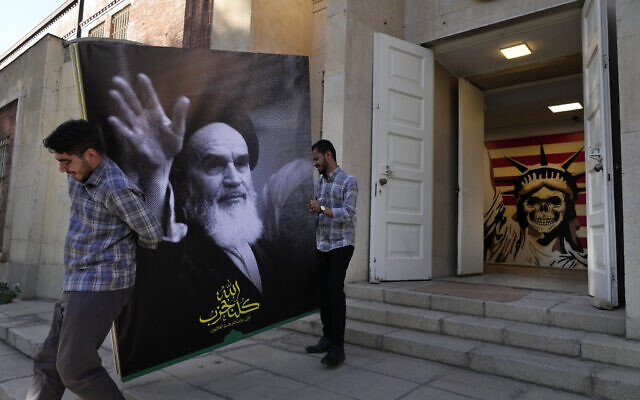The U.S. State Department revealed Sunday that Iranian-American journalist Reza Valizadeh, a former employee of a U.S. government-funded broadcaster, has been detained in Iran for several months, raising concerns about renewed tensions between Washington and Tehran.
The disclosure comes as Iran’s Supreme Leader Ayatollah Ali Khamenei issued threats of “a crushing response” to Israel and the United States following a recent Israeli attack, and coincides with the 45th anniversary of the American Embassy takeover in Tehran.

Valizadeh, who previously worked for Radio Farda, an affiliate of Radio Free Europe/Radio Liberty under the U.S. Agency for Global Media, returned to Iran in March 2024 after a 13-year absence. Before his return, he reported on X that Iranian authorities had detained his family members in an apparent effort to compel his return.
“I arrived in Tehran on March 6, 2024,” Valizadeh wrote in an August social media post. “Before that, I had unfinished negotiations with the (Revolutionary Guard’s) intelligence department…eventually I came back to my country after 13 years without any security guarantee, even a verbal one.”
The Human Rights Activists News Agency, which monitors Iranian cases, reports that Valizadeh was initially detained upon arrival, briefly released, then re-arrested and transferred to Evin prison. He now faces trial in Iran’s Revolutionary Court. The agency noted he had previously been arrested in Iran in 2007.
Iranian authorities have not confirmed Valizadeh’s detention. The State Department, working through Swiss diplomatic channels since the U.S. lacks an embassy in Iran, is seeking information about his status.
“Iran routinely imprisons U.S. citizens and other countries’ citizens unjustly for political purposes,” a State Department spokesperson told AP. “This practice is cruel and contrary to international law.”
If confirmed, Valizadeh would be the first known American detained in Iran since September 2023, when five Americans were released in exchange for five Iranians in U.S. custody and the unfreezing of $6 billion in Iranian assets held by South Korea.
The case highlights Iran’s long-standing practice of using detained foreign nationals as bargaining chips in international negotiations, a strategy dating back to the 1979 U.S. Embassy hostage crisis. This latest detention occurs against a backdrop of escalating regional tensions, with Iran threatening retaliation against both Israel and the United States.
The timing of the revelation, coinciding with the 45th anniversary of the U.S. Embassy takeover in Tehran, adds another layer of complexity to the already strained U.S.-Iranian relations. Radio Farda, Valizadeh’s former employer, is considered a hostile organization by Iranian authorities, potentially complicating his case.



